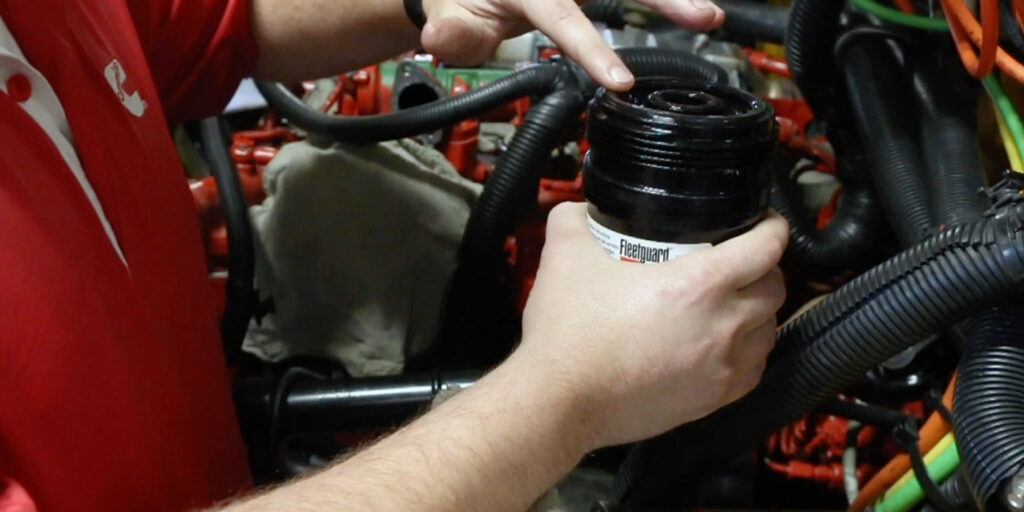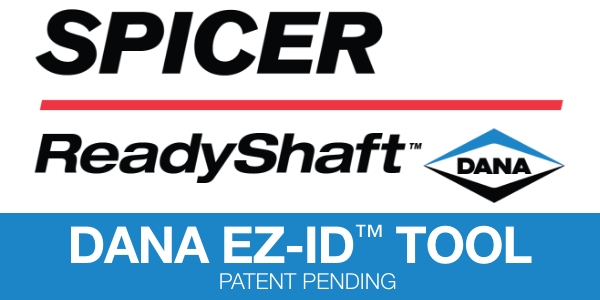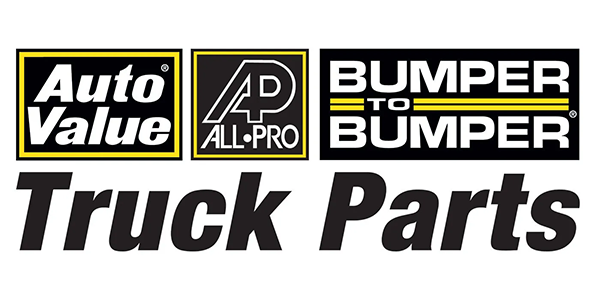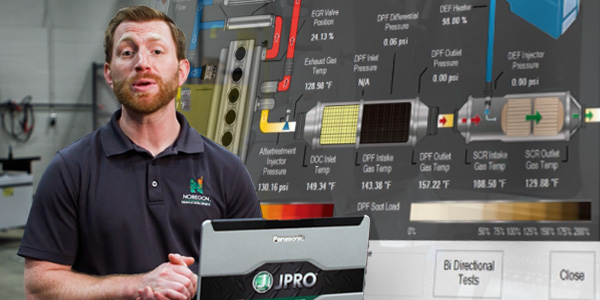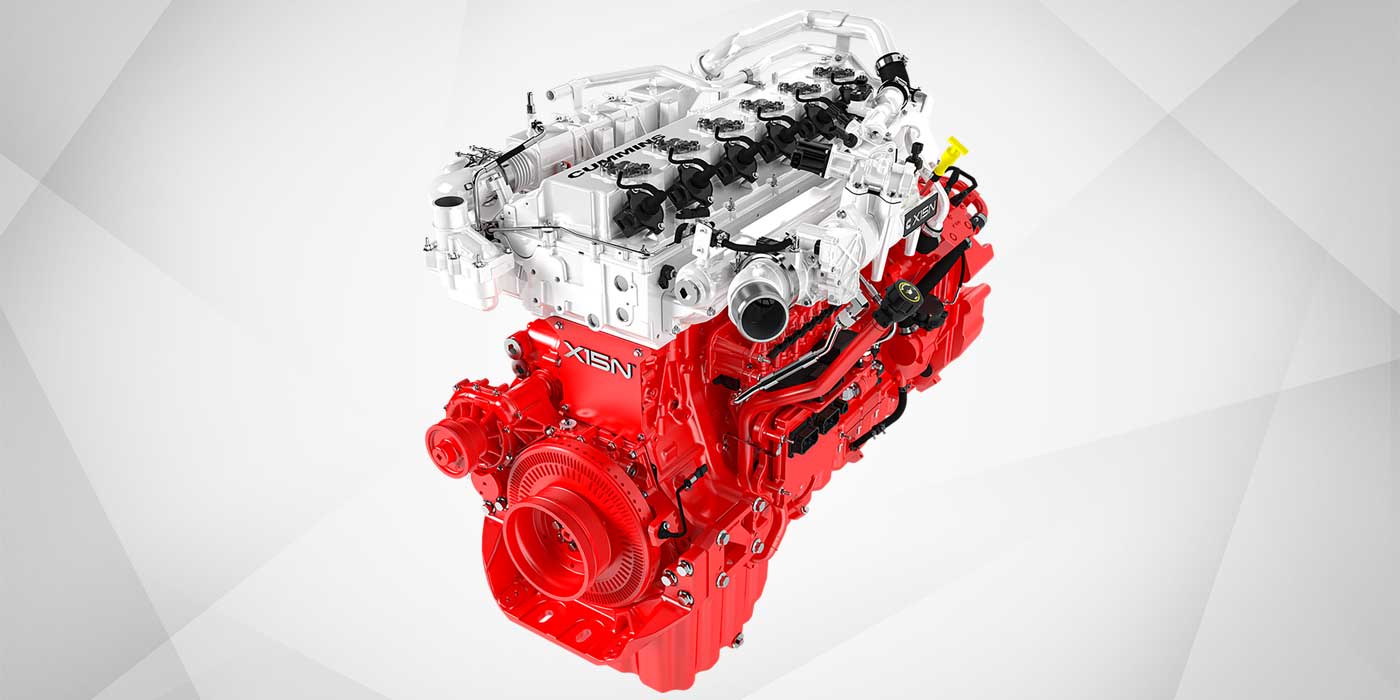Let’s get this straight: Heavy-duty truck filters are not a commodity. More goes into filter creation and manufacturing than just some random filter media and nice casing. The filters protecting today’s hyper-efficient heavy-duty engines are engineered to specific specs. If you spin on any old filter, you could be setting yourself up for more truck service headaches.
“If I was talking with a family member, I would recommend that they choose a reputable company to buy from when it comes to filter choices,” said Brian Terry, field service engineer, Fleetguard. “A cheap upfront filter price may end up costing you a lot more in downtime, in towing charges, in aggravation. Filtration, overall, is a smaller investment than the components that you are protecting; that’s really the job of the filter. You definitely would rather replace something a lot more convenient and lower cost, like a filter, than an expensive fuel system component if you’re not protecting it with proper filtration.”
Terry noted that high-quality filter manufacturers, like Fleetguard, pay attention to quality and needed specs, and utilize the latest filtration technologies, to ensure the filtration products that they make are of the highest quality.
Knowing what filtration choice to select is one thing, it’s also important to know when you have to change your diesel engine filters. Let’s knock out the easy one first.
When to change the diesel engine air filter
Jim Smith, field service engineer, Fleetguard, noted that it’s important to pay attention to the restriction indicator to know when to replace the engine air filter. That might seem obvious, but like most service practices, it’s best not to take it for granted.
“Fleets often operate on service schedules based on mileage or hours, but they should rely on restriction indicators to determine the best time to change filters,” Smith said.
When to change the diesel engine fuel filter
With all of the changes to the diesel engine over the years, the point at which you replace the fuel filter might be different than most fleet managers remember.
“Before it was just a blanket number, but now engine manufacturers tend to tailor the fuel filter service interval to how much fuel you’re burning,” Terry explained. “For example, severe-duty applications where you’re getting less than five miles to the gallon have shorter service intervals of about 25,000 miles.
“When you get to a typical long-haul application–between the 5 to 7 MPG range–you’re looking at more of the 50,000-mile service interval for fuel filters, give or take 10,000 miles,” Terry continued. “When you get into the high-efficiency engines–beyond 7 MPG–you’re starting to talk about 60,000 to 75,000 miles.”
Fuel quality affects the service life of the filter. OEMs outline fuel quality standards, typically following the ISO 4406 standard where 4-, 6-, and 14-micron particle concentrations are measured, giving a good picture of how clean or dirty the fuel is. Yet, there’s more to the overall picture of what clean fuel is since some contamination can start smaller than the 4-micron level and stick together creating a larger blanket that coats the small pores in the filtering media, significantly shortening life. This is where filter blocking tendency (FBT) tests can become important. Products like the Fleetguard Portable Fuel Cleanliness Kit (FK36000) give customers an idea of what’s in the fuel and how likely it is to plug up a filter.
The seasons and weather can also factor into the service life of a filter. Many operators are familiar with diesel fuel gelling and waxing at lower temperatures and we commonly hear complaints of short filter life during the seasonal changes from warm-weather to cold-weather fuel conditioning. Petroleum suppliers also commonly add drag reducing additives or other cold flow improvers to help with fuel distribution that can eventually end up being caught in the high efficiency filters.
Fuel storage maintenance and fuel transfer can also be hidden sources of extra contamination causing shorter than expected filter life.
When to change the diesel engine oil filter
Diesel engine oil filter intervals are also dependent on the efficiency of the truck. For example, the current Cummins oil drain interval for the X12 and X15 is set at 75,000 miles for fleets with 7+ MPG, and fleets have the opportunity to extend that up to 100,000 miles by participating in the Cummins OilGuard program.
The key to setting the right oil drain interval is working with your engine manufacturer and sticking to an used-oil analysis program. Oil drain intervals should never be extended without talking with your engine manufacturer. You’ll also want to have a clear understanding of your application and current MPG for the engine in question.
Click here to connect with Fleetguard to better understand your diesel engine filtration needs.

